Burnout can often creep up on you, manifesting in subtle ways that may be easy to overlook. You might find yourself feeling increasingly exhausted, both physically and emotionally, even after a full night’s sleep. This fatigue can be accompanied by a sense of detachment from your work or personal life, leaving you feeling unmotivated and disengaged.
You may notice that tasks that once excited you now feel burdensome, and you might struggle to muster the enthusiasm you once had. Recognizing these signs early is crucial; it allows you to take proactive steps before the situation escalates. Another common indicator of burnout is a shift in your emotional state.
You may find yourself feeling irritable or frustrated more often than usual, even over minor issues. This emotional volatility can strain your relationships with colleagues, friends, and family, leading to further isolation. Additionally, you might experience a decline in your performance at work, characterized by decreased productivity and a lack of creativity.
If you notice these signs in yourself, it’s essential to acknowledge them rather than dismiss them as temporary feelings. Understanding that these symptoms are valid and require attention is the first step toward recovery.
Key Takeaways
- Recognizing the Signs of Burnout:
- Pay attention to physical and emotional exhaustion, cynicism and detachment, and feelings of ineffectiveness and lack of accomplishment.
- Understanding the Impact of Burnout on the Body and Mind:
- Burnout can lead to a range of physical and mental health issues, including chronic fatigue, insomnia, anxiety, and depression.
- The Role of Systems in Contributing to Burnout:
- Organizational factors such as excessive workload, lack of control, and poor support can contribute to burnout.
- Harnessing Support Systems for Healing:
- Seek support from friends, family, and colleagues, and consider professional help such as therapy or counseling.
- Implementing Self-Care Strategies to Combat Burnout:
- Prioritize self-care activities such as exercise, relaxation techniques, and setting boundaries to prevent and combat burnout.
Understanding the Impact of Burnout on the Body and Mind
Burnout doesn’t just affect your mental state; it has profound implications for your physical health as well. When you’re in a state of chronic stress, your body releases hormones like cortisol, which can lead to various health issues over time. You may experience headaches, gastrointestinal problems, or even cardiovascular issues as a result of prolonged stress.
The connection between your mind and body is intricate; when one suffers, the other often follows suit. Recognizing this link is vital for understanding the full scope of burnout’s impact. Moreover, burnout can lead to significant cognitive impairments.
You might find it challenging to concentrate or make decisions, which can exacerbate feelings of inadequacy and frustration. Memory lapses may become more frequent, making it difficult to recall important information or complete tasks efficiently. This cognitive decline can create a vicious cycle: as your performance suffers, your stress levels increase, further deepening your sense of burnout.
Acknowledging these effects is crucial for developing a comprehensive approach to recovery and healing.
The Role of Systems in Contributing to Burnout
Burnout is not solely an individual experience; it is often a product of systemic issues within workplaces and society at large. You may find that organizational culture plays a significant role in your feelings of burnout. For instance, if your workplace prioritizes productivity over employee well-being, you might feel pressured to work long hours without adequate breaks or support.
This systemic neglect can create an environment where burnout thrives, making it difficult for you to maintain a healthy work-life balance. Additionally, societal expectations can contribute to feelings of burnout. In a culture that often glorifies busyness and constant achievement, you may feel compelled to push yourself beyond your limits.
This pressure can lead to unrealistic standards for performance and success, leaving you feeling inadequate when you inevitably fall short. Recognizing these systemic factors is essential for understanding the broader context of your burnout experience and for advocating for changes that promote healthier work environments.

Harnessing Support Systems for Healing
| Support System | Benefits |
|---|---|
| Therapy | Emotional healing and coping strategies |
| Support Groups | Shared experiences and sense of community |
| Family and Friends | Unconditional love and understanding |
| Self-Care Practices | Stress reduction and self-compassion |
One of the most effective ways to combat burnout is by leveraging your support systems. Friends, family, and colleagues can provide invaluable emotional support during challenging times. When you share your feelings with those you trust, you may find that they can relate to your experiences or offer helpful perspectives.
This connection can alleviate feelings of isolation and remind you that you are not alone in your struggles. Building a network of support can be a powerful tool in your journey toward recovery. In addition to personal relationships, consider seeking out professional support as well.
Therapists and counselors can provide guidance tailored to your specific situation, helping you develop coping strategies and tools for managing stress. Support groups can also be beneficial; connecting with others who are experiencing similar challenges can foster a sense of community and understanding. By actively engaging with these support systems, you create a safety net that can help cushion the impact of burnout and facilitate healing.
Implementing Self-Care Strategies to Combat Burnout
Self-care is not just a buzzword; it is a vital component in combating burnout and promoting overall well-being. You might start by assessing your daily routines and identifying areas where you can prioritize self-care practices. Simple actions like taking regular breaks throughout the day or setting aside time for hobbies can make a significant difference in how you feel.
Engaging in activities that bring you joy or relaxation allows you to recharge and regain perspective on your responsibilities. Physical self-care is equally important; regular exercise, a balanced diet, and adequate sleep are foundational elements for maintaining your health. When you prioritize these aspects of self-care, you may notice improvements in your energy levels and mood.
Mindfulness practices such as meditation or yoga can also be beneficial in reducing stress and promoting mental clarity. By incorporating these self-care strategies into your routine, you empower yourself to combat burnout effectively and cultivate a healthier lifestyle.
Creating a Healthy Work Environment
A healthy work environment is essential for preventing burnout and fostering employee well-being. If you have the ability to influence your workplace culture, consider advocating for policies that promote work-life balance and employee support. This could include flexible work hours, opportunities for professional development, or initiatives that encourage open communication about mental health.
By fostering an environment where employees feel valued and supported, you contribute to a culture that prioritizes well-being over mere productivity. Additionally, consider how your own workspace affects your mental state. A cluttered or disorganized environment can contribute to feelings of overwhelm and stress.
Taking the time to create a workspace that feels comfortable and inspiring can enhance your focus and motivation. Small changes like adding plants, organizing your desk, or personalizing your space can have a positive impact on your overall experience at work. By actively participating in creating a healthy work environment, you not only benefit yourself but also contribute to the well-being of those around you.
Utilizing Professional Help to Overcome Burnout
When burnout becomes overwhelming, seeking professional help can be a crucial step toward recovery. Mental health professionals are equipped with the tools and knowledge necessary to guide you through this challenging experience. Therapy can provide a safe space for you to explore your feelings and develop coping strategies tailored to your unique situation.
Whether through individual therapy or group sessions, professional support can help you gain insights into the root causes of your burnout and empower you to make meaningful changes. In addition to therapy, consider exploring other forms of professional help such as coaching or counseling services offered through your workplace. Many organizations provide resources aimed at supporting employee mental health, including access to licensed professionals who specialize in burnout recovery.
Utilizing these resources not only demonstrates self-awareness but also shows a commitment to prioritizing your well-being. By seeking professional help, you take an important step toward reclaiming control over your life and mitigating the effects of burnout.
Building Resilience and Preventing Future Burnout
Building resilience is key to preventing future episodes of burnout and fostering long-term well-being. You might start by reflecting on past experiences and identifying coping strategies that have worked for you in the past. Developing a toolkit of techniques—such as mindfulness practices, time management skills, or stress-reduction exercises—can empower you to navigate challenges more effectively in the future.
Additionally, cultivating a growth mindset can enhance your resilience. Embracing challenges as opportunities for learning rather than obstacles can shift your perspective and reduce feelings of helplessness when faced with stressors. Surrounding yourself with positive influences—whether through supportive relationships or inspiring literature—can also bolster your resilience over time.
By actively working on building resilience now, you equip yourself with the tools necessary to navigate life’s challenges while minimizing the risk of future burnout. In conclusion, recognizing the signs of burnout is just the beginning of a journey toward healing and recovery. Understanding its impact on both body and mind allows you to take informed steps toward addressing the issue holistically.
By acknowledging systemic factors contributing to burnout and harnessing support systems effectively, you create a foundation for healing. Implementing self-care strategies and advocating for a healthy work environment further enhances this process while seeking professional help provides additional guidance along the way. Ultimately, building resilience equips you with the tools needed to prevent future burnout and foster a fulfilling life both personally and professionally.




